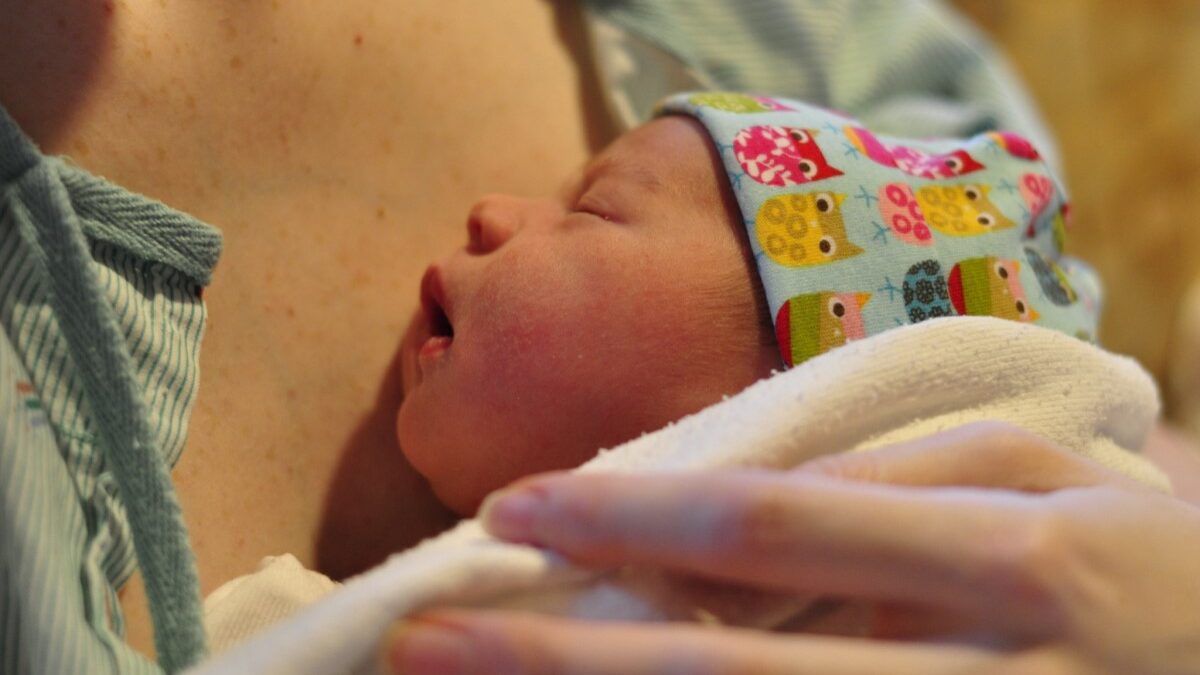
One of the last states to do so, New York recently legalized commercial surrogacy. This means New Yorkers can now pay women to carry a baby to term. Under New York’s law, which state Sen. Brad Hoylman touts as “a model for other states,” surrogate mothers are also guaranteed legal representation and an abortion if they so choose.
Naturally, Gov. Andrew Cuomo touts this as a triumph of “love over fear” and a much-needed update to the law. In contrast to the state’s horrific abortion law enacted two years ago — allowing abortion up to the point of birth — legalizing commercial surrogacy appears to promote the creation of life and families.
As such, many people, including those who might support life, celebrate the policy. Doubtless, they probably imagine a loving married couple who suffer from infertility but desire children. Or, influenced by pop culture, they probably recall Lisa Kudlow’s character Phoebe in “Friends” being a surrogate mother, or may imagine a celebrity couple like Kim Kardashian and Kanye West using a surrogate.
Life vs. Lifestyles
These images are profoundly misleading, however. At its heart, surrogacy is not about accommodating life but accommodating lifestyles. No longer is parenthood determined by the rules of nature or traditional monogamy; it is, as proponents say, determined by intention.
If an adult wants a baby and has $150,000 to spare, he or she (or both) can have a baby. This person might be in a same-sex relationship, or a polygamous commune, or completely solitary, but this will no longer pose a barrier. Furthermore, surrogacy ensures that the intended parent does not have to deal with the messy complications that might come from adoption.
By defining parenthood by intention instead of biology, legalized surrogacy becomes a vicious process that is destructive of human life. Far from being a safe and automatic procedure, in vitro fertilization (IVF) and impregnating a surrogate are inexact sciences that frequently lead to loss of life. Moreover, the thinking behind purchasing a baby (to use cruder but more honest language) necessarily objectifies both the child and the surrogate mother and immediately leads to exploitation of the poor by the rich.
To begin, misunderstandings about surrogacy usually originate with in vitro fertilization process itself. As those who have undergone fertility treatments can attest, IVF is a grueling emotional roller coaster. The rate of success (that is, getting a fertilized egg to develop into a healthy baby) is less than 50 percent, requiring multiple fertilization cycles with multiple eggs. It often happens that a cycle might yield multiple embryos (to be clear: conceived human beings), leaving the mother to decide whether she wants to possibly implant these extra embryos in her womb, freeze them for later, or discard them.
The grave evil of keeping newly conceived babies in a freezer or throwing them in the trash is precisely why the Catholic Church condemns in vitro fertilization. When commercial surrogacy is added to the mix, the horrors abound. As Katy Faust explains:
We already have disaster surrogacy cases of men mass-producing surrogate babies, ‘pedophile intended parents’ who created surrogate children, and babies handed over to unstable adults over the objections of the surrogate. In some cases, it’s difficult to distinguish surrogate pregnancies from child trafficking.
Somehow, it seems unlikely that making surrogacy legal will reduce, rather than increase, such outcomes. Additionally, women who become surrogate mothers must endure the severe stresses of pregnancy. They must undergo hormone treatments, regulate their diets, and often endure complications like gestational diabetes, fetal growth restriction, pre-eclampsia, and premature birth. Along with this is the intense emotional turmoil that results from bonding with a child for so many months only to give that child to the “intended” parents.
Sacrifices, Connections, and Enduring Love
Setting aside the physical consequences of surrogacy, huge moral problems arise. When parenthood is redefined, so too are many other fundamental concepts of life and family. What does it mean to be a son or daughter? What does it mean to be a parent? What happens when the quintessentially natural process of childbirth is hijacked by technology?
If one accepts mere intentionality as the essential feature of family bonds, then what separates the desire for a son or daughter from the desire for a bigger house or nicer car? And what happens when one doesn’t desire the child anymore or the original desire wanes? Is one not a parent now?
These questions weigh on a son who is not a life in himself but more an accessory to the life of his intended parents. This is probably why children of sperm donors seem to struggle more with emotional problems than children who grow up with their biological parents.
There’s something to be said for the investment that comes with natural pregnancy and childbirth. A mother gives up so much of herself for her baby, and, ideally, the father helps support the mother in this effort. Both make sacrifices, and this forges a connection with their child. In this process, they cultivate an enduring, unconditional love for their child, something altogether different from parents who have no such investment.
Even generously assuming that a healthy baby is produced for a stable, loving couple without any negative physical or emotional repercussions for the child, there is still the problem of the surrogate mother who is being exploited. Even if a government legalizes surrogacy, it would be grossly inaccurate to equate this with any other economic exchange: one adult is paying to use another adult’s body, a key part of her very self.
Quite understandably, a woman who consents to rent out her body for pregnancy and birth would not do so if she were wealthy; her consent is predicated on need, not empowerment. This is why countries like India banned surrogacy three years ago, and so have many other countries.
Wealthy westerners preyed on poor, vulnerable women in other countries who faced extreme destitution or carrying a baby for a former boy band singer. In legalizing commercial surrogacy, New York is effectively signaling its support for this kind of extreme privilege over extreme poverty.
Children Aren’t Commodities or Products
So, considering the problems that arise, it’s baffling New York and corporate media would choose to champion and celebrate this law. Once a person can make it through the euphemisms and emotional testimonies, so much of this is based on vanity and selfishness.
Already, people have stripped the unborn of any protections, so it logically follows that they would have no qualms about trading unborn children as commodities. This logic can be seen in the language of the law. Writing for the Catholic News Agency, Jonah McKeown reports:
The legislation explicitly denies any and all rights to babies in utero, stating that they may not be viewed as a ‘child’ under the laws of New York, with the presumption that they must instead be viewed as manufactured products or disposable goods.
In short, surrogacy is about adults having children on their own terms. Even if comes at the cost of ruining the surrogate mother and their intended child, they insist on living a life that is naturally incompatible with childrearing. This home starts broken. As the home goes, so does the greater community.
Those who oppose the culture of death that has created a demographic winter for the developed world should see commercial surrogacy as yet another expression of this culture. Parenthood, childhood, and natural procreation are things to be conserved and cherished. Not only is it critical for the flourishing of civilization, it lies at the heart of humanity’s very existence.









